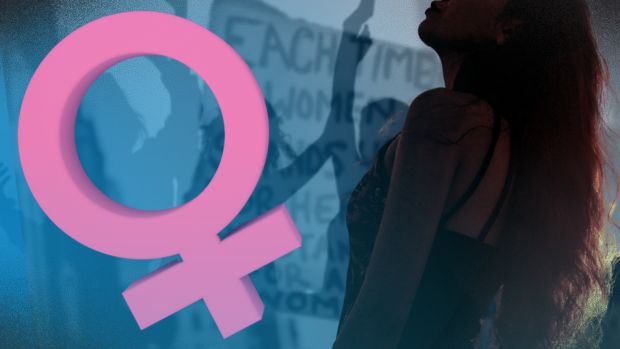Men should do more domestic tasks to boost women’s presence in labor force – expert

INQUIRER FILE PHOTO
MANILA, Philippines — Across the globe, women’s labor force participation relative to men’s shrank in 129 countries, including the Philippines, according to the World Economic Forum (WEF) 2022 Gender Global Gap Report.
While the Philippines ranked 16th among 146 countries in terms of allowing women to tap economic opportunities, its score in said component slightly dipped from 79.5 to 79.4 percent.
The WEF also pointed out that economic participation and opportunity stand as the “second-longest challenge to global gender parity” next to political empowerment.
“In 2022, at the current rate of progress, this gap will close in 151 years, representing multiple generations to parity,” it noted.
Women in PH out of labor force
University of the Philippines Center for Women’s and Gender Studies director Nathalie Africa-Verceles told INQUIRER.net in a recent interview that a lot of women in the country are not engaged in the labor force.
Article continues after this advertisement“They are not looking for jobs because they are tied to their households, their care work. And as you know, it takes time and energy,” Africa-Verceles said partly in Filipino.
Article continues after this advertisementCiting data from the Philippine Statistics Authority Labor Force Survey, the Center for Women’s Resources had earlier said that some 18.4 million women were unemployed in 2022 – posting a decline from around 1.58 million jobless women in 2021 but a significant increase from about 852,000 unemployed women in pre-pandemic 2019.
READ: Women hardest-hit in pandemic job market – International Labor Organization
Africa-Verceles said the “only solution” to the problem is “to change mindsets, to change perspectives of everyone – not just the women but also the men.”
“When we talk about cultural norms, beliefs, attitudes, stereotypes, it’s not only men who bear those. It’s also the women. So, the women themselves have to be conscientize, to be critically aware that you do not necessarily have to be pegged to the household. Because even women themselves think that they have principle responsibility over childcare and domestic tasks,” she explained.
If women are made critically aware that domestic tasks do not solely fall on their shoulders, Africa-Verceles said this would help raise generations of Filipinos – both daughters and sons – who have such understanding embedded in their beliefs.
Shifting cultural mindsets, shared responsibility
Africa-Verceles, however, recognized that a shift in cultural mindsets is not an easy first step. So, how?
She called for households to reduce the domestic work of women by inculcating in the family the concept of shared responsibility.
“All the work that entails care and maintenance of the family – this has to be more equitably shared with men. And men, they don’t do household work. If they do, you’re even grateful because they don’t see it as their responsibility. I think men should take on more domestic tasks,” Africa-Verceles said.
The government, she noted, should also play its part in supporting women, not just through passing but also implementing laws that unburden them.
“The State should support community-based services,” she said, noting that this should include stricter implementation of existing laws like the barangay-level Total Development and Protection of Children Act.
READ: PH slips in inclusion index, putting women, children at risk
Signed way back in 1990, the said law calls for the establishment of a daycare center in every barangay and the institution of a total development and protection of children program.
But should women be inclined to seek self-employment, the government should improve the environment for women entrepreneurs to thrive, Africa-Verceles said.
“We can make it easier for them to establish micro and small enterprises. We can improve our ease of doing business. We have to analyze what it is that we can do to encourage women to enter the labor force,” she continued.
Africa-Verceles likewise pressed on the need to break apart the cultural norms, attitudes, beliefs, and stereotypes that keep women out of certain kinds of work – simply because they are women.
READ: Women landing powerful posts, but still with difficulty
Delving more into how workplaces can contribute to empowering women in the labor force, she said policies at work play a crucial role in improving women’s participation in the economy.
“We can enforce strong policies against sexual harassment because that also deters women from working. If the workplace is an unsafe place, why would you want to subject yourself to that? There are so many things that can be done to encourage women to work, and I don’t think enough efforts are actually being made,” she pointed out.